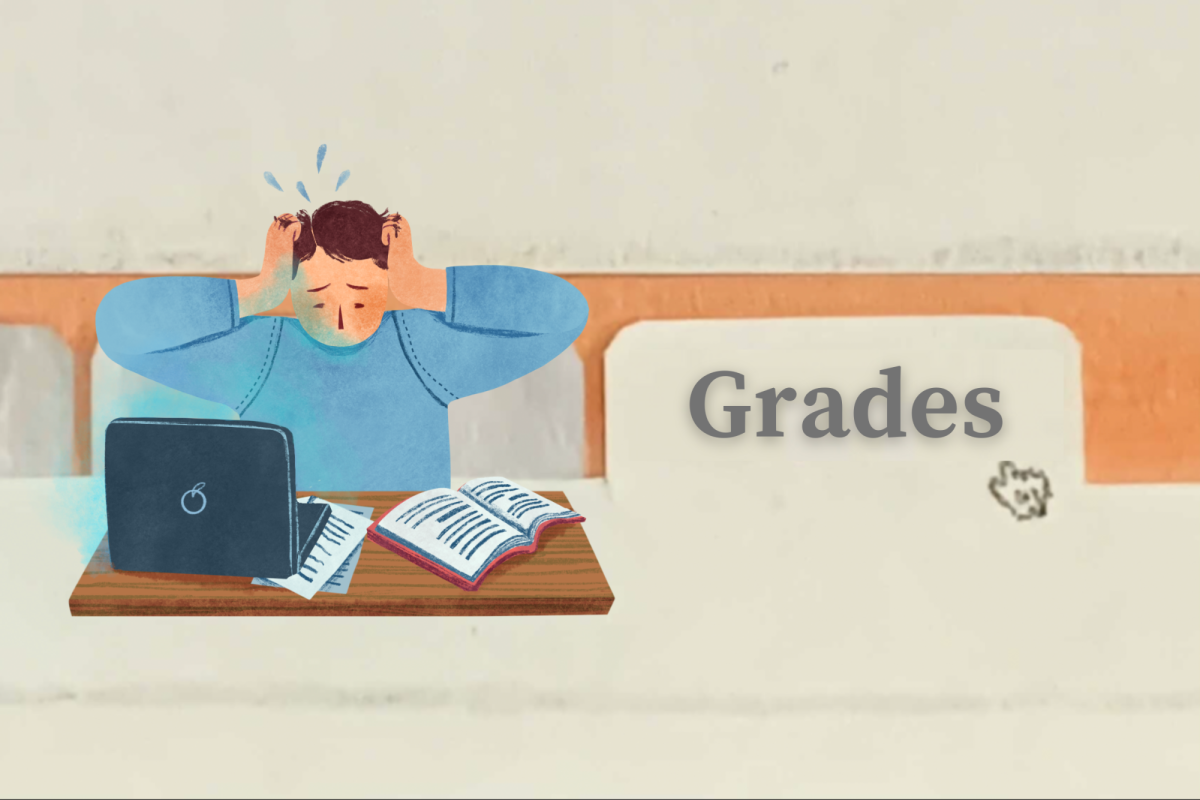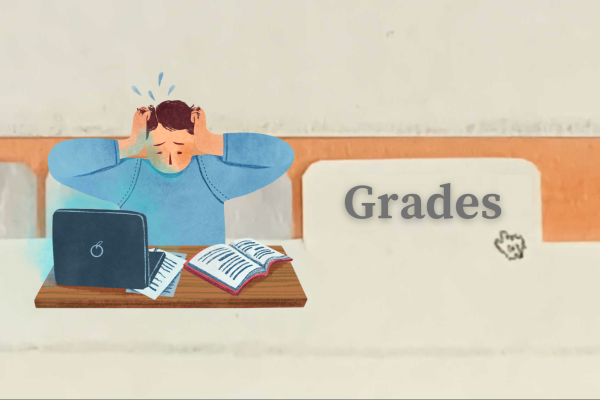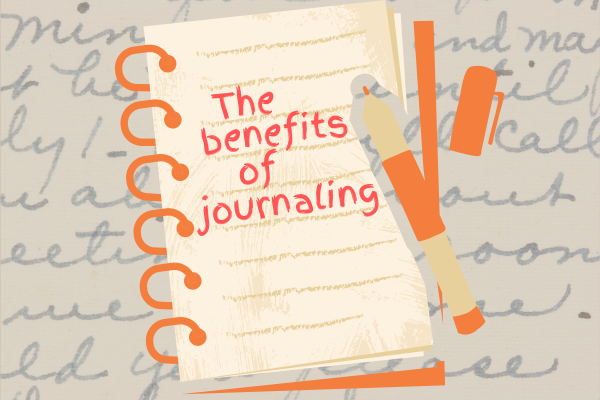Opinion: How do we bring religion into the 21st century?
Credit: Theo Ghosh
WSPN’s Genevieve Morrison discusses the issue of faith and reconciling modern beliefs.
March 24, 2022
Christianity has gone through fragmentation after fragmentation, splitting into hundreds of different factions, levels of conservatism and new-age radicalizations. Many are unrecognizable from each other, teaching almost opposite doctrines, but they are all in the name of the same man.
With this in mind, I’ve had a different religious experience than many of my peers. As a patron of the increasingly hippy-dippy environment of the Episcopal church, I’ve found it difficult to relate to the strict Catholic culture that is so prevalent in Massachusetts. I’ve often heard stories of strict teachings and unrelenting guidelines to live by, which are unrecognizable from the free-form self teaching approach to faith formation which I have enjoyed.
With such different interpretations of Jesus’s message, it’s hard to fathom that they could all be in the same religion. It’s unbelievable that one man, who supposedly was the picture of radical inclusivity, could also be the symbol of restriction and hatred that certain sects have painted him to be. So who’s right? The answer isn’t simple.
It’s unbelievable that one man, who supposedly was the picture of radical inclusivity, could also be the symbol of restriction and hatred that certain sects have painted him to be.
— Genevieve Morrison
To explain, let’s look at the six antitheses. These are passages in the book of Matthew in which Jesus refutes a commonly held understanding with his teachings on the issue. These include such revered standards as “eye for an eye” and “you shall not murder.” They are included in the famous Sermon on the Mount and are regarded as a strengthening of the very 10 Mosaic commandments.
“You have heard that it was said, ‘Love your neighbor and hate your enemy.’ But I tell you: Love your enemies and pray for those who persecute you, that you may be sons of your Father in heaven. He causes his sun to rise on the evil and the good, and sends rain on the righteous and the unrighteous.”
Matthew 5:43-45
Arguably the most revered antithesis, “love thy neighbor,” is one of the points where all the different denominations of Christianity can find common ground. With that said, its significance is vastly more emphasized in the cushy progressive church, who have interpreted it as a call for inclusion. It’s referenced to love all races, sexualities and genders. This is an idea that many can get behind, even those who don’t consider themselves religious.
Another antithesis lays out Jesus’s teachings on a different taboo.
“It has been said, ‘anyone who divorces his wife must give her a certificate of divorce.’ But I tell you that anyone who divorces his wife… causes her to become an adulteress, and anyone who marries the divorced woman commits adultery.”
Matthew 5:31-32
This one is a little more polarizing. But it’s hard to ignore. It’s not just a random, out-of-context quote. It’s not vague, or really up to interpretation at all. Like “love thy neighbor,” it’s comparable to the 10 commandments. So if divorce is an explicit no-go, how can we reconcile the fact that so many Protestant branches have done away with this idea?
Firstly, divorce is a fact of life. In 2017, over 700,000 legal divorces took place in the U.S. In light of this fact, church after church has given up the anti-divorce dogma. In 2015, six out of 10 Catholics said that they believe those who have been divorced should be allowed to receive Communion. Even Pope Francis, the leader of the supposedly conservative Catholic church, stated an open policy in 2016 to those who have divorced or remarried. This seems like a direct violation of a canon of the Bible. Maybe it is. But, it’s also the right decision.
In the most literal of senses, it would be sacrilegious to ignore this teaching. But it’s blatantly unrealistic to stick by it.
— Genevieve Morrison
In the most literal of senses, it would be sacrilegious to ignore this teaching. But it’s blatantly unrealistic to stick by it. How can we, in the 21st century truly believe that divorce should damn us to hell? Many of us agree that this idea is outdated. But by that logic, can’t everything in the Bible can be tossed away, labeled as out of touch?
Not exactly. Progress doesn’t mean the Bible is irrelevant. This uncertainty, this constant search for answers is exactly what the purpose of Christianity was. The fact that we have broadened our horizons to consider other points of view means that message is still alive. It also means that we can extend Christianity to accept other sins.
This is not an easy thing to come to terms with. It’s confusing, and it can even drive people away from their faith. It’s an eternal grapple that many religious people avoid, instead choosing to remain comfortably in the faith of their upbringing. I urge you not to do that.
Whatever it is that brings you back to religion, despite this struggle, hold onto it. Maybe, it’s nostalgia for too-long sermons on yawning Sunday mornings, or the comfort of a dusty church basement or the community of overly kind acquaintances and old ladies. It could be faith. It could also be a belief in something bigger, so big that that Sunday service is the only way you know how to talk to it.
Whatever it is that brings you back to religion, despite this struggle, hold onto it.
— Genevieve Morrison
You won’t lose that if you pivot your beliefs in the direction of progress.
The Bible isn’t a rule book to adhere to at all costs. Rather it’s a collection of lessons that are meant to prompt questions, ones that no one truly has the answers to. If we lose a lesson or two along the way, then so be it, because there is so much more to be found than one stance on an issue. There’s no objectivity in a book written two thousand years ago. There’s no objectivity in religion at all. If we got bogged down in every single dated take in a religious text, progress would be impossible.
So if they’re right, and we’re right, and they’re wrong, and we’re wrong, there’s really no us vs. them. Every denomination disregards some portion of religion or another, so it’s impossible to criticize each other for “manipulation” of the Bible. After all, faith is what you want it to be.












![WSPN’s Annika Martins and Maddie Zajac explore the athletic life of senior Annabelle Zhang through her badminton career. “This [photo] is me and my former partner after we won the 2022 junior nationals mixed doubles category,” Zhang said.](https://waylandstudentpress.com/wp-content/uploads/2024/04/IMG_6629-1200x900.jpg)













































































Anonymous Recent Alum • May 15, 2022 at 8:13 AM
Don’t worry – as a non-Protestant WHS alum, your religion was not only relevant but defined my high school experience and near future. Students based their social structure over who was Christian and who was not because church-going Christians/students from other religions that were assimilated into Christian culture were “popular” students who bullied or ostracized non-Christians (mainly Asians who were Atheist/Buddhist/Agnostic and Jewish students). Most of us were not invited to parties (the irony-even though drunkenness is forbidden for Christians, they were using these behaviors to wield authority over the possession of the religion that prevented them) and were not spoken to unless out of obligation in the classroom. I was friends with a Catholic girl at one point, and her mother hardly talked to and appeared repulsed by mine. A Christian boy regularly bullied me and two Asian girls. Christian girls repeatedly mocked me of how “innocent” I was since I did not engage in premarital sex since my religion values modesty (…doesn’t theirs too?). LGBTQ students – they weren’t even allowed to sit in the cafeteria. We, who did not conform to Christian religious or behavioral norms, were treated like we smelled bad and had to be avoided. Even though, when I crumbled under this pressure, one Muslim and two Christians helped me (I think this is the pattern Christians do – they put someone through hell and then play the savior so that the hurt one becomes dependent and reliant on them, like an abuser in those relationships we learned about in health class), the people who caused these issues were Christians and acceptance of their actions. Ultimately, the “saved” went to college happily, and I have mental health issues from this experience that I’m still dealing with. I don’t mind it-the experience only made me stronger. Christians, please stop pretending to be victims when you’re the majority religion of the school that uses your power to hurt many people and have historically done exactly that. Such hypocrisy! Is it not a religion of love?
Ann Fratto • Mar 24, 2022 at 1:45 PM
I can understand how confused Christians can be, but this verse below is from 1 Peter 1:20. In a nutshell it means that we are not to have various interpretations. All scripture is God-Breathed…inspiration given to certain prophets and is not up for personal interpretation but should be understood as it is written. God doesn’t want several interpretations.
New American Standard Bible
“But know this first of all, that no prophecy of Scripture becomes a matter of someone’s own interpretation.”
whs '21 alum • Mar 24, 2022 at 11:27 AM
this is a super well-written article! you make great points, but as a Christian myself, I encourage you to do some more research or speak to a pastor/priest/minister about these topics. i understand Christians are hypocrites and many who say they are don’t reflect the values of Christianity, but its all a process. as Christians we proclaim that we are all sinners and we need God. I love this opinion piece. keep up the work